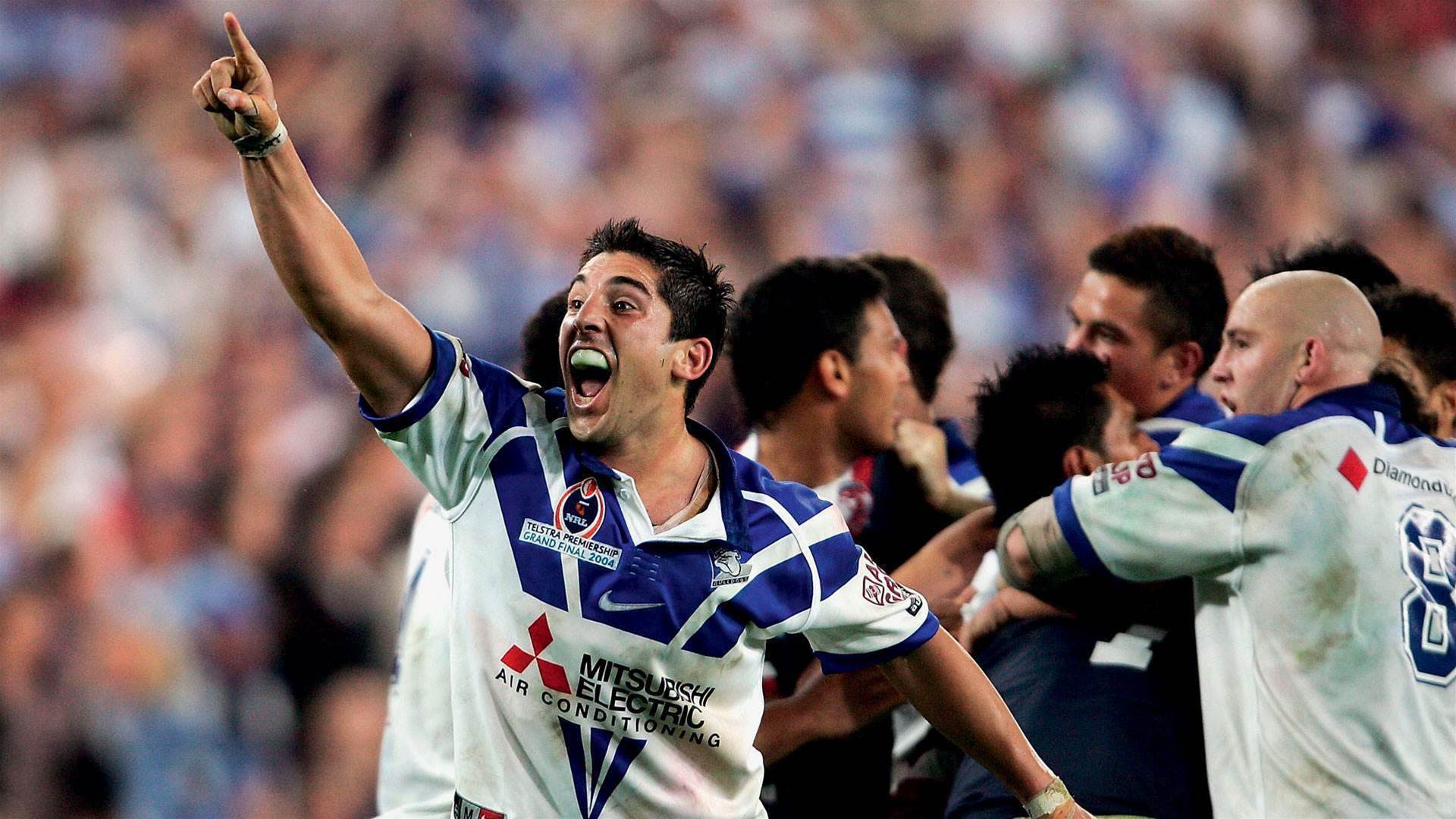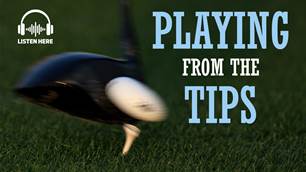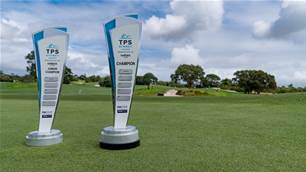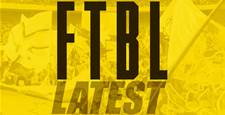In many respects, Braith Anasta’s playing career tracked a path that can be distinctly observed in rugby league stardom today: from teen hotshot to early success, a big-money move to overbearing public scrutiny.
When we catch Braith Anasta, he’s still riding the high of the birth of his new daughter, Gigi. He admits he hadn’t thought much yet about the coming rugby league season, but that would soon change – the 288-gamer for Canterbury, the Roosters and Wests Tigers has made a seamless transition to the media since his NRL retirement in 2014, working as a commentator for Fox League. It’s a job he had prepared for while he was still playing, and one he relishes: “It's the closest I can get to being in the game, the pressure of live TV.”
Having gone through it all, Anasta is clear-eyed in his view. “I’m telling you how it is,” he insists – so Inside Sport was eager to get his take on why the stars go to the Roosters, will Brad Fittler be a good coach for NSW Origin, and what it means to be called “overrated”, among other things.
You were a highly touted Souths junior, but you had the misfortune of Souths being out of the competition in 2000 as you were about to crack first grade. What went into your decision of where to sign?
I played all my rugby league with Souths coming through the grades, and I was a Souths supporter. Everything was Souths. The only reason I left was because they were kicked out of the competition. My aspiration even at 16, 17 was to play first grade, and hopefully – although I didn’t expect it to happen – I wanted to play within a year.

That’s the ultimate goal when you’re a young fella. As soon as Souths was gone, I had to find somewhere else to go. It was the Roosters, Melbourne and Canterbury. My uncle, George Piggins, was good mates with Arthur Coorey and other members of the board at the Bulldogs. He was encouraging me to leave because he wanted me to achieve my dreams.
It was tough. The Bulldogs was the call I made, and it was the right call in the end. But I have no doubt: if Souths hadn’t been kicked out of the competition, I would have played my whole career there. It was just shocking timing for me.
Was there a crucial factor in going to the Bulldogs? Was it your uncle, or was staying in Sydney important?
Sydney was a big thing. My dad had passed away only a couple of years before, and my mum was by herself. Melbourne impressed me, the set-up they had. That was a tough one to knock back. I had to eliminate them because I wanted to stay in Sydney, because of my family. And at the time, funny enough, Roosters were the enemy to Souths. Even though they were interested, I hated them …
The big thing that stood out with Canterbury was, they were the type of club that would look after me. The family club, they had a strong board, the Mortimers, the Hugheses. My mum and all of us thought that’s where I fit in the most. I was going through a tough time even though I was doing well in rugby league. They were hard, too – disciplined and tough. They were the best possible club at the time. They were so successful, and they were the family club. I don’t know if they’re quite there at the moment; they’ve lost that aura.
You won a premiership in your fourth full season with Canterbury. I remember asking your old Roosters team-mate Anthony Minichiello about winning one as a young player, and he talked about not appreciating it properly. Did you have the same experience?
Yep, and if you have success early, you think that’s just the way it is. You talk about Mini, similar situation, like the Roosters back then, we were top-four for three or four years. Come straight into grade, making semis every year, won the premiership by 21 or 22. You don’t understand at the time. You’re elated; it’s the best feeling ever. But you still don’t understand what you’ve achieved until you realise how hard it is to achieve it. And that only comes with time and playing many seasons … You definitely appreciate it more after winning and seeing how hard it is to get back there.

Did you have a later team that you felt was as good or better than the ’04 Bulldogs, but just didn’t get over the line?
That team we had in 2004, we had some experienced heads, but we had guys that would go on and have bigger and better careers. We had no weakness; everyone was tough, everyone was born to play. I don’t think I would’ve got close to having a squad like it after that, when I think about it.
When we made the grand final in 2010 with the Roosters, we just had a dream run. We had a young team – when we lost that grand final, I was devastated. I’m sure Mini was too. The senior guys were rocked by it. I knew I was, because I’d taken so long to get back to that stage.
I remember we were on the team bus on the way home, and all the young kids, they were just happy to make the grand final. We’ve got mad Monday, they were singing and having a drink. And I’m sitting up the front thinking: these guys, they don’t know what they’ve just missed out on; they might not get another one again. And in turn, a lot of those guys got one three years later. I knew they were going to win it, because I knew they had that same feeling, how limited those opportunities are.
You made what has become the well-established move to the Roosters. What is it about the club that is so alluring to players?
I’ll tell you what it is – when you sign with the Roosters, you’re in the Eastern Suburbs, and I don’t care what anybody says, it’s a great lifestyle. You’re getting paid good money to live in a beautiful area and play the sport you love.
That’s a factor as it is. Then you’ve got arguably the most successful – well, a group of them – man to be involved in rugby league in Nick Politis. He can really help you in a lot of ways on and off the field. Apart from being mentors who can steer you in the path of being successful, they can help you with opportunity, they have connections throughout the business world … There’s so many things the Roosters offer that other clubs can’t. I know a lot of people get the shits about it, fans of other teams. Because they can’t provide that, they are at a disadvantage. But the Roosters are in a position to do that, and that’s the difference.
You see that with the likes of Tedesco and Cronk. They could go anywhere and probably get more money. But Cronk wants to get his university degree, and Tedesco was a Roosters supporter – he wants to win a premiership. And again, that’s another thing. They’re always up there, and if they’re not, they’ll make sure they are. And that’s appealing to a player.

You played for Brad Fittler. How do you think he’ll go as New South Wales coach?
I’m a big fan of Freddie. When he first got the Roosters job, we had instant success, but over time, it was too early for him. And I think he’d admit that. He’s had some time over the last few years to get to know coaching – he knows the game better than anyone – and get used to the position.
When he was my coach, apart from my first years at the Bulldogs, he got the best out of me. I liked a bit of a chilled coach, but one who also had belief and confidence in you. That was a trigger for me, and he knew that. He’s very smart, but he’s also one of the boys. And he had to find that balance, being one of the boys and being the coach. He looks to have found that. The most important thing is to surround himself with the right people, which he’s done – the fact he’s got Joey [Andrew Johns] and Bedsy [Danny Buderus], they’re fantastic guys. They’re successful at Origin level.
You bridged the era of NSW’s last three-peat and the start of Queensland’s streak. You’re a golfer, so you’ll appreciate: every tournament winner gets a little luck on their way to victory. Was that a factor in the eight-straight and beyond, or did you see a dynasty coming in 2006?
I didn’t, you know. We won in 2005, I was a part of that, and in 2006 we won the first game, lost the second and I got dropped. After that, I never thought it would get to the dominance they had. I respected their players, thought they were fantastic. But still – Slater wasn’t Slater yet, Cronk wasn’t Cronk. Thurston was close, but they weren’t the players they are today.
That’s a good analogy – you do need a little luck, especially to keep a streak like that. But then again, and I’ve lived by this, you make your own luck. Those guys put themselves in position to get the bounce of the ball, because they’re still in the game – when sometimes they shouldn’t have been.
How do you think Mitchell Pearce will fare with the Knights? Will a change of scenery in Newcastle do him good?
I love Pearcey. It’s a tough one. For someone who’s been successful for such a long time, people still have question marks over him. One demon he’s always had to battle, he’s always had high expectations. The Origin thing has been tough; I think it’s affected him. I was speaking to him before he made the decision, and he was torn. He was blindsided by the Roosters. He was disappointed. I thought Newcastle was a great move for him because the expectations are not as high. The lifestyle thing for me is garbage – he’s just bought a place in Coogee. I don’t think that comes into it. It’s more: he’s got his mates there, a team that’s improving, and he can relax. If he makes the semis, it’s a successful year. If he just misses out, it’s still not a bad year.

On the subject of the attention that players can get lumped with: the “overrated” label, which followed you around later in your career. What was your view of that? Has working in the media changed the way you understand it?
It hurt my footy career, because I was a very confident player. I think Pearcey is a very similar case. You come through as a young player, and you’re dominant in your age. What makes you so good at what you do is you’re just invincible – you believe you’re better than anyone else, you can win games when they’re on the line. You know no other way. When you’ve got your own players and fans doubting you, you question yourself. It’s only normal. Rarely it won’t affect your game – a big part of being successful at anything is confidence. You lose a bit of it.
But I go back to: to be overrated, you’ve got to be rated first. When I got my “most overrated”, I’ve got guys who were dead-set 50-gamers who couldn’t throw a pass voting on whether I’m overrated or not. But really – if I’m 18 years of age and I’m on the back page of the paper and everyone’s saying I’m the next Freddie Fittler – I don’t blame someone going, “He’s not Fittler, that’s bullshit.”
For a long time at the start of my career, I was playing good rugby league. There was so much hype and talk that I’d play an average game, and I’d read my name in the paper the next day – I thought, “I didn’t even play that good.” So I understand how it happens; the media beats you up. If you don’t reach that expectation, the only way to go is down.
What’s your surprise prediction for 2018?
I think Parramatta is going to do really well. We all know Melbourne, Roosters, Cowboys will be there. I love Brad Arthur, and touch wood health-wise, Gutherson, Moses, Norman. They’ve got a mobile and skilful pack. They can get hot, and they’ve had a good offseason, I’ve heard.
Interview by Jeff Centenera
Related Articles
Shin and Armstrong lead at Castle Hill

Playing From The Tips Ep.49: Phoenix Open, LIV Vegas, Players Series Sydney


.png&h=115&w=225&c=1&s=1)










